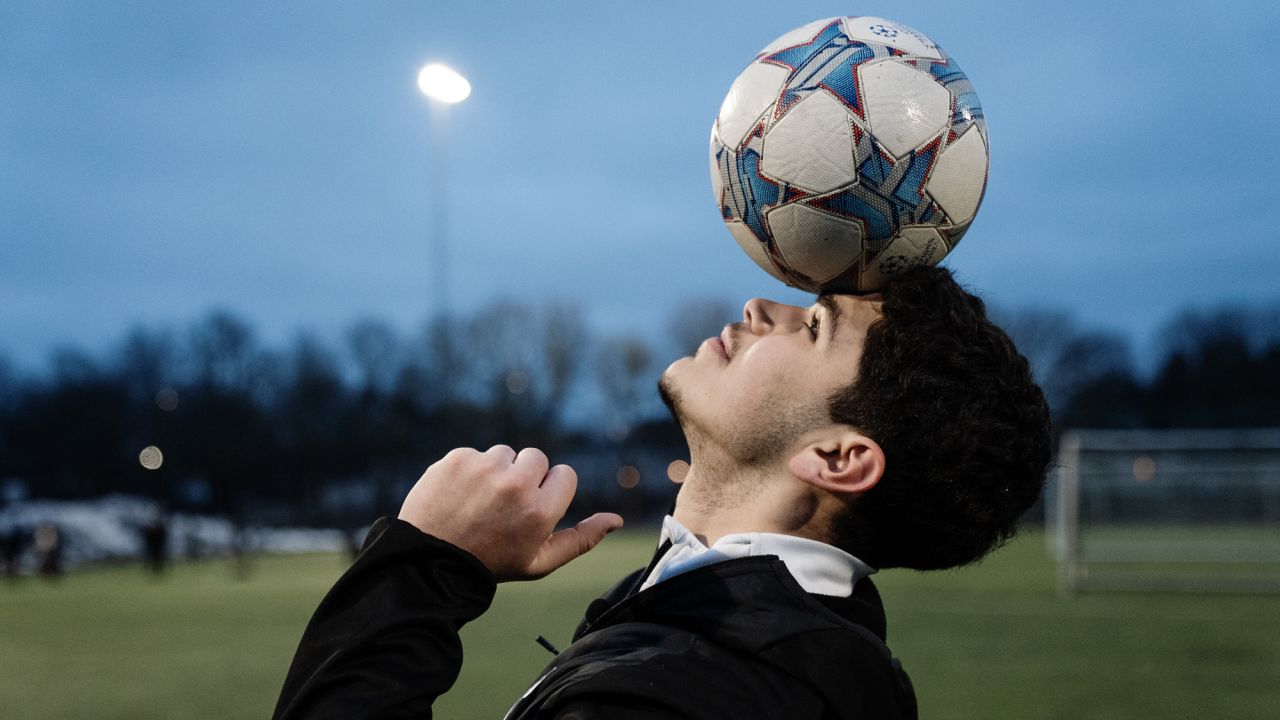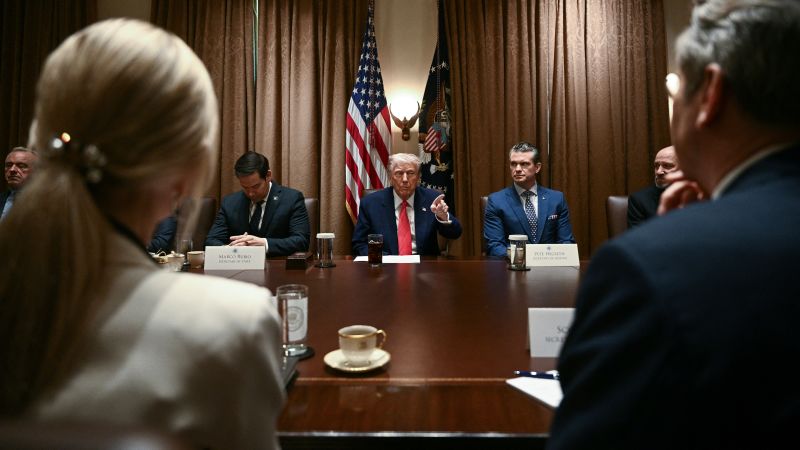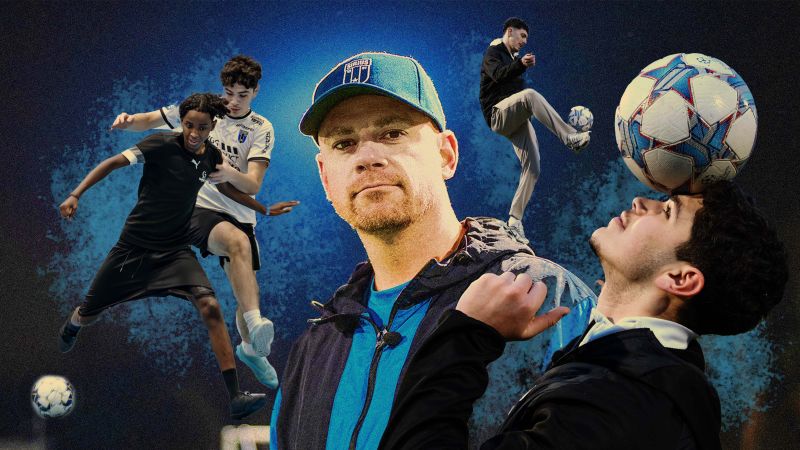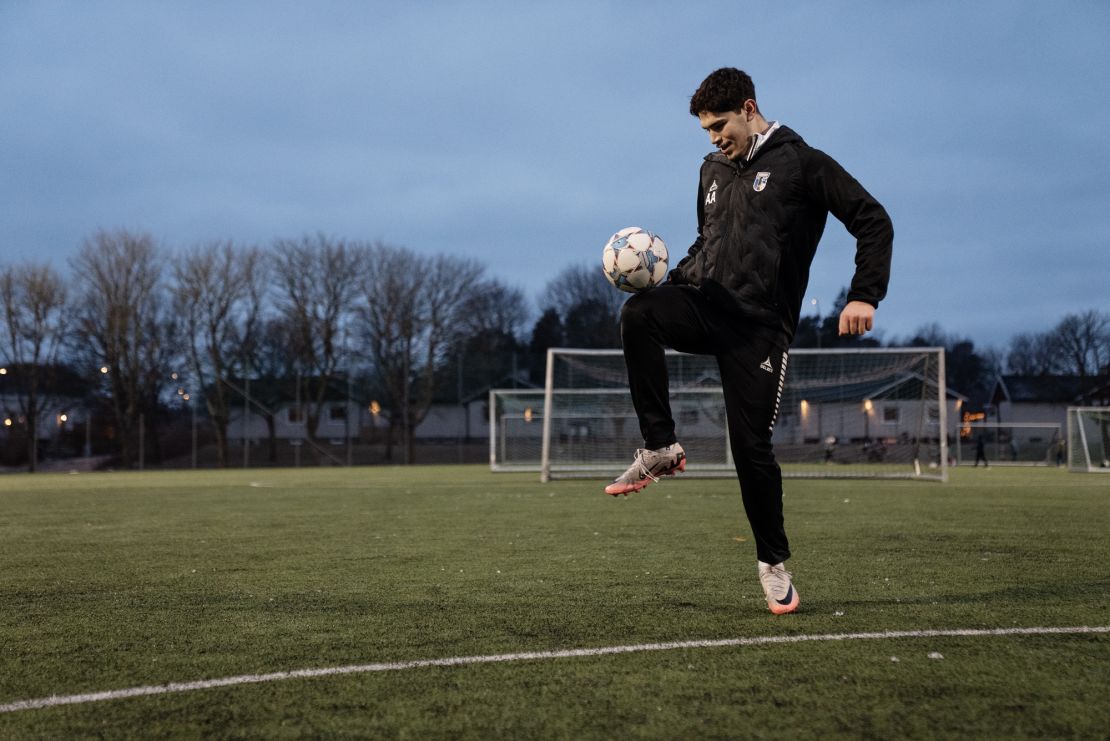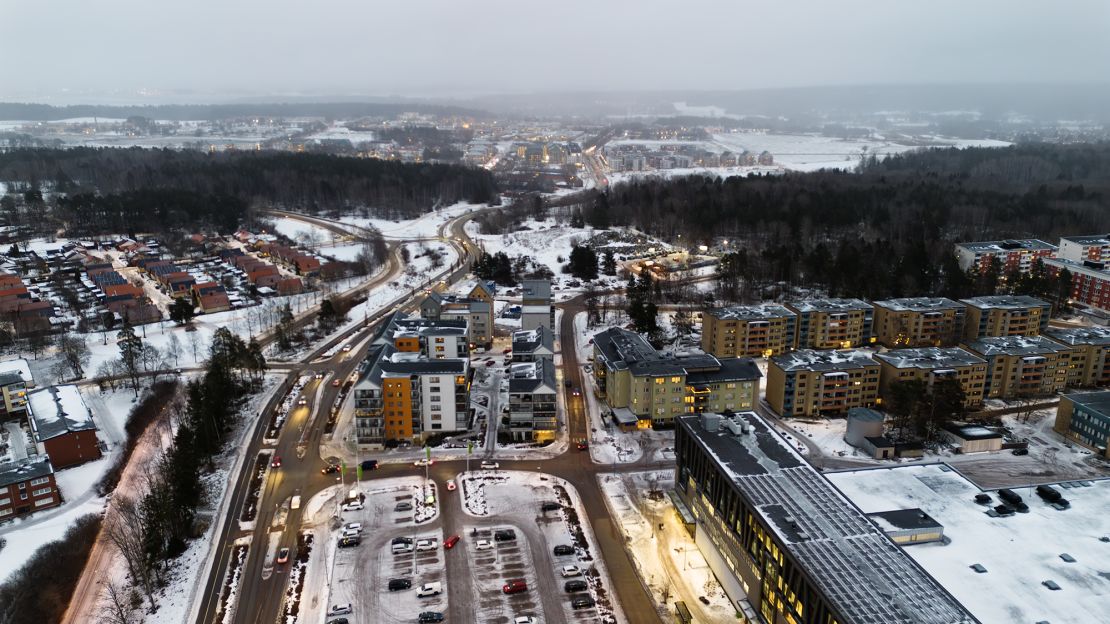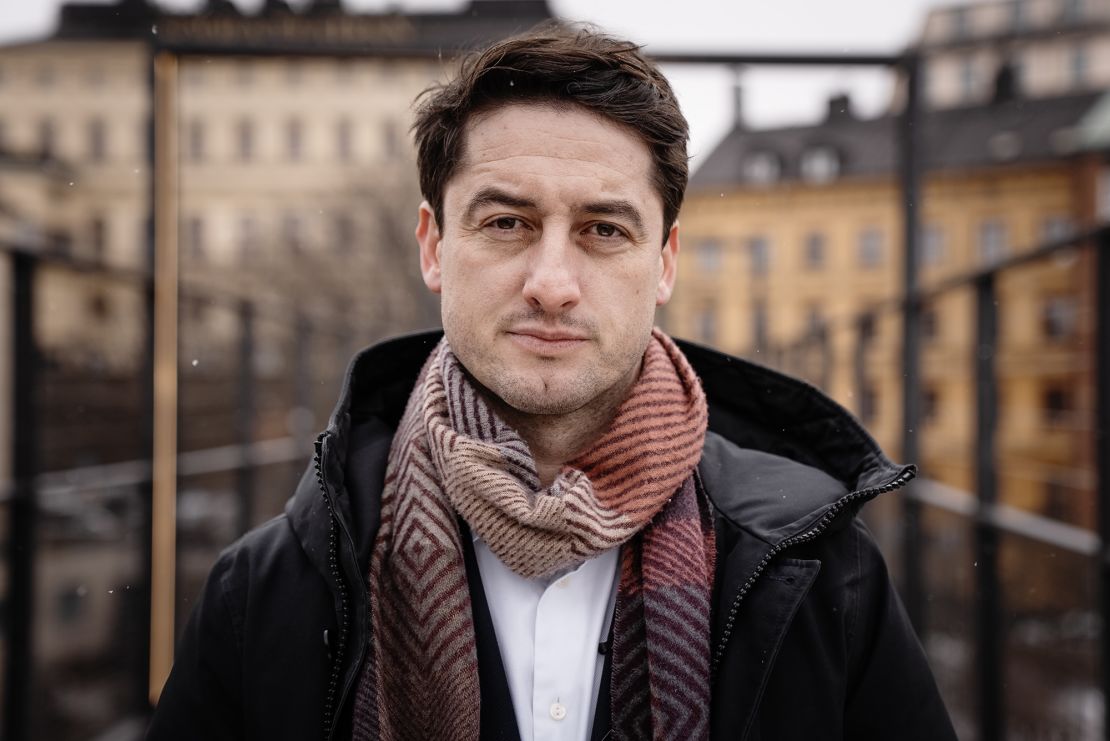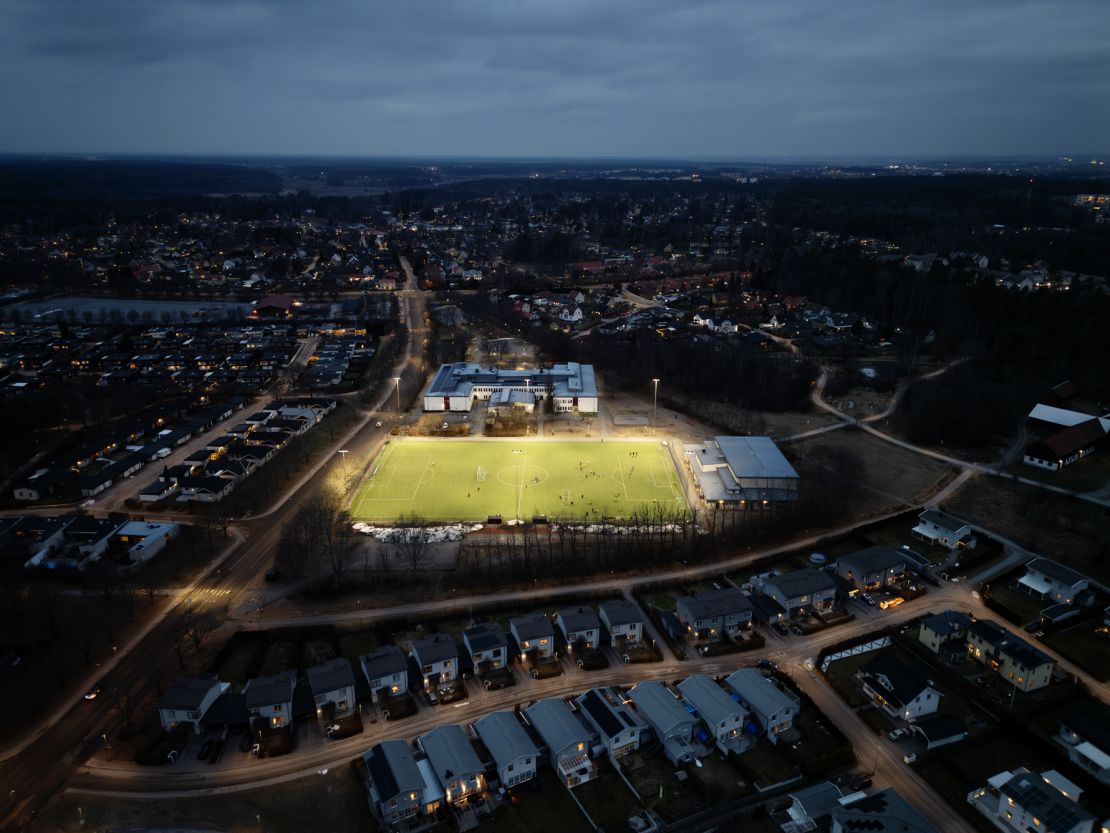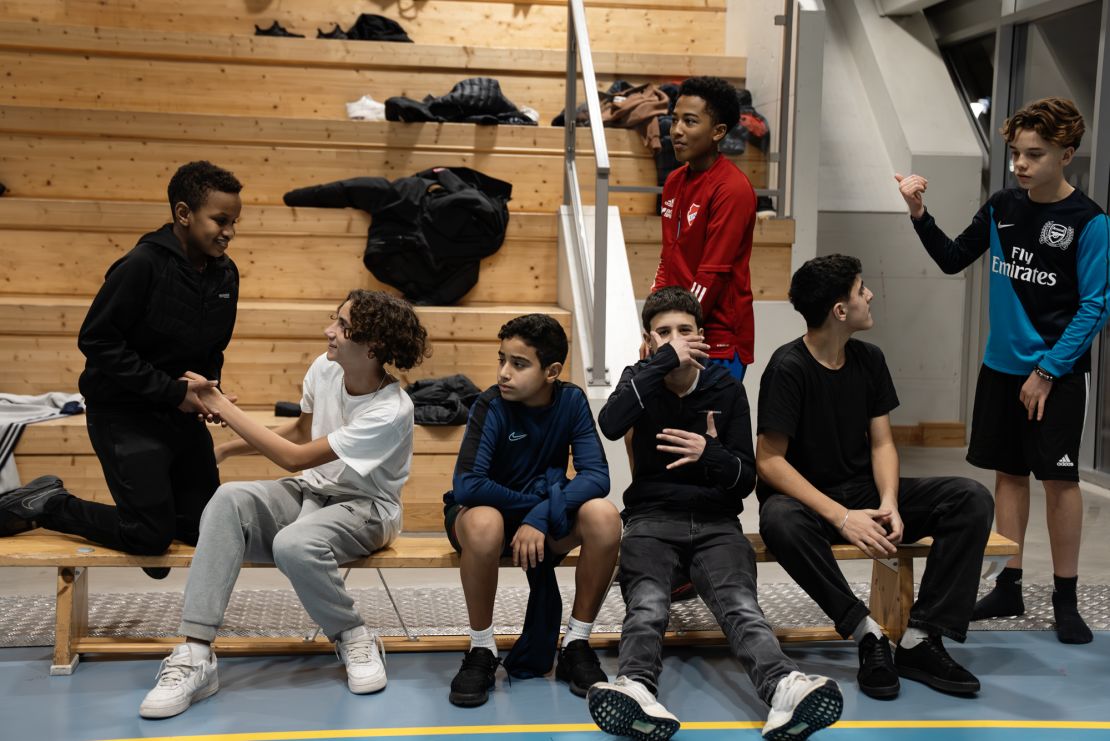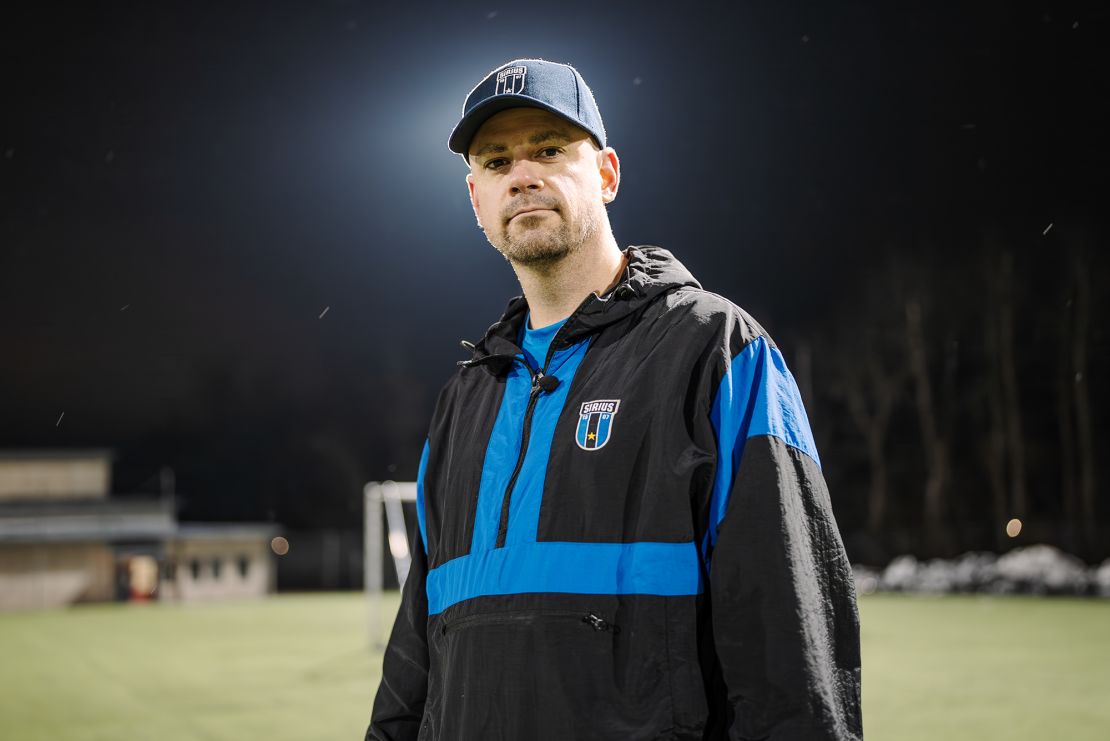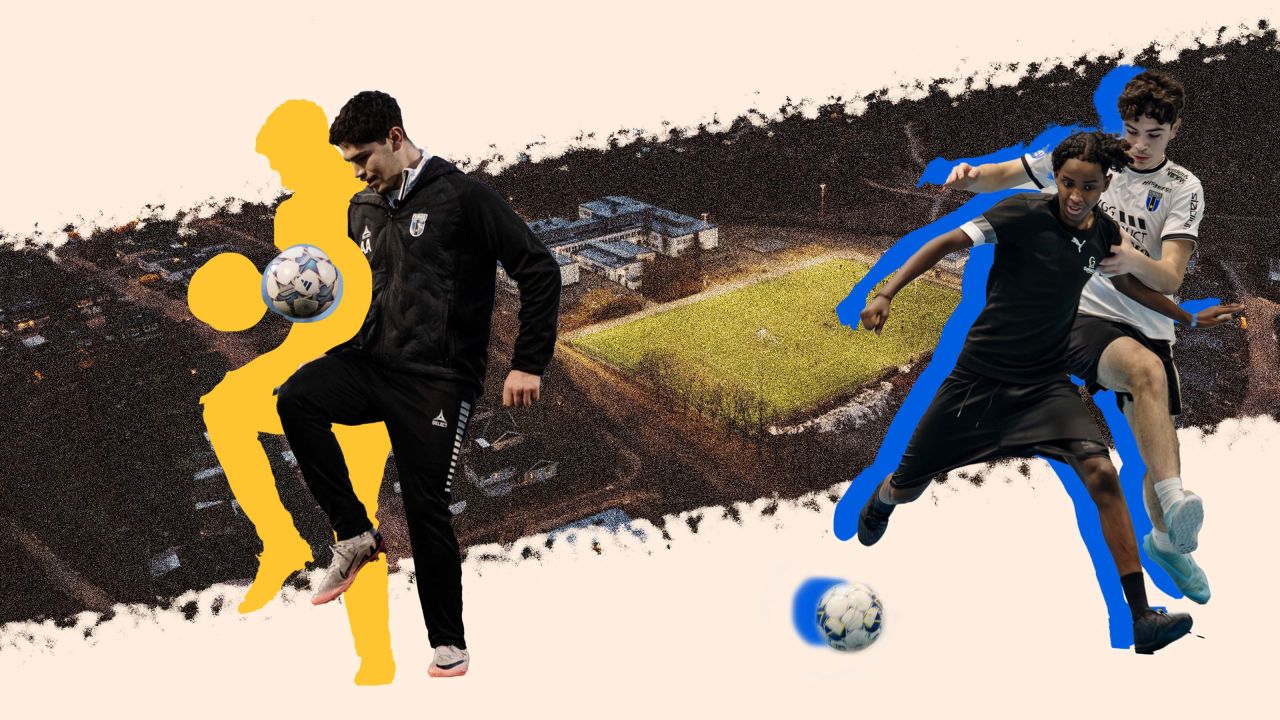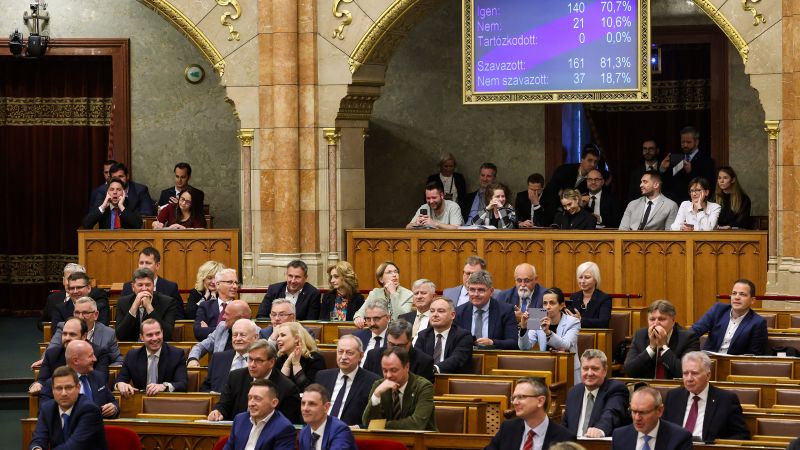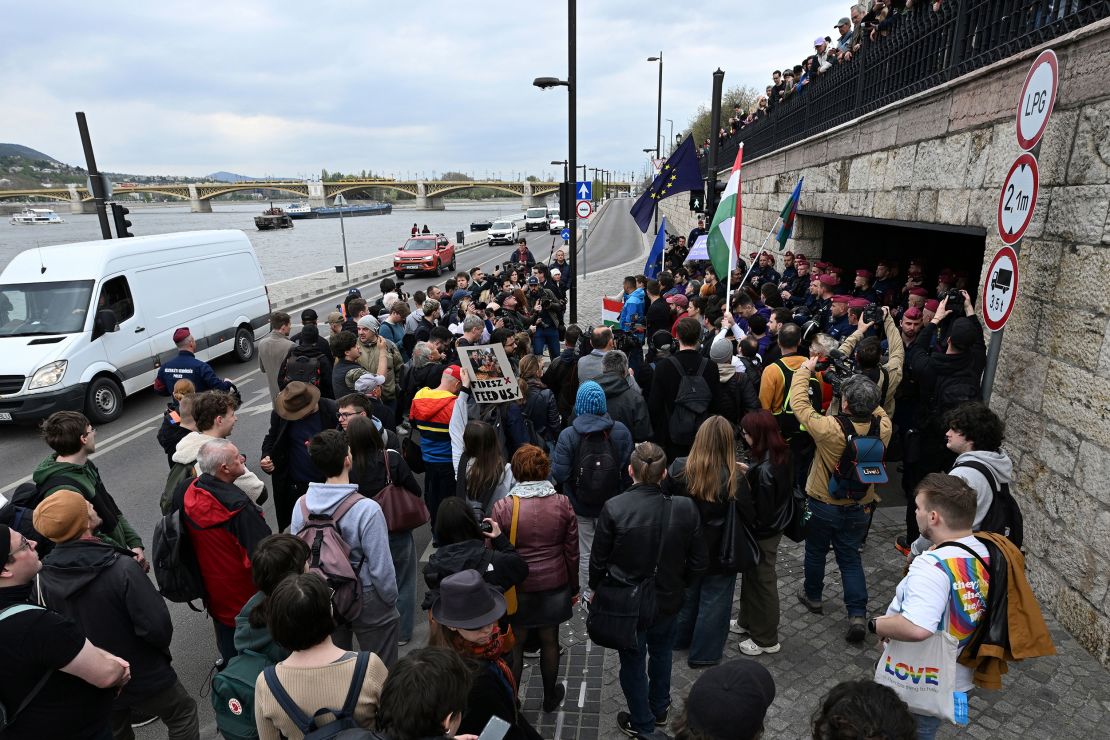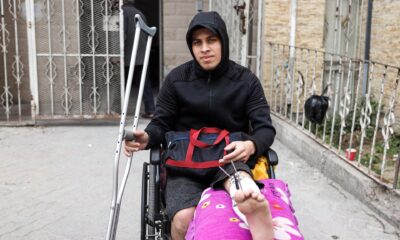CNN
—
Every Saturday night throughout the year, Robert Wirehag – a pastor and former youth soccer player for Swedish club IK Sirius – arranges “night football” in Gottsunda, a suburb of Uppsala, Sweden’s fourth-largest city.
Uppsala is traditionally known as a peaceful university town roughly 44 miles from the capital of Stockholm, but there are no college students to be seen in the center of Gottsunda on this night.
There are, however, plenty of young boys between the ages 12-17 – all of whom Wirehag says are “potential gang members.”
“Why? Because they live in a specific suburb in the outer part of this city,” he tells CNN Sports. “And they are – all of them – at risk of being recruited to the gangs. Some of the boys we are working with are already in gangs. Some of them are on their way to being recruited, and some of them are not yet there.”
The suburbs where they hold night football sessions are socioeconomically disadvantaged areas, where people often lack access to well-paid jobs, frequently due to language barriers. This creates a breeding ground for criminal activity, Wirehag explains.
“Criminal lifestyles emerge in places where there is no money. This leads to people wandering around with nothing meaningful to do. They are at risk of being drawn into a lifestyle of making quick money in an easy but criminal way. That’s why we run activities on Saturday nights – because that’s when they tend to roam around the most.”
One of the participants on the night CNN visits is 18-year-old Abdulraof Alchaieb, known as Abudi to his friends.
“Every Saturday night, I’m here. It’s a war on the field,” he tells CNN.
The “war,” in fact, seems to start at team selection. Starting out, Wirehag thought the best idea would be for him to pick the teams. Growing up in a Swedish culture, he didn’t like the thought of the boys picking teams themselves, since someone would always be everyone’s last choice.
“They then chose to leave, in protest against my team selection,” says Wirehag. “I was given the tip to let the guys decide themselves, and ever since then, it’s been working perfectly.”
“Perfectly” is not the term everyone would choose to describe the chaos unfolding, but after 10 minutes of loud arguments, the teams are chosen. Abudi, who also plays on the under-19s for first-division Swedish club Sunnersta AIF Fotboll, is one of the team captains.
How soccer is providing a lifeline for Sweden’s youth
How soccer is providing a lifeline for Sweden’s youth
01:03
“If I hadn’t had football, I think I could’ve slipped into crime. When you’re my age, 15, 16 or even 14, older guys can easily play with your head. Like, ask you to go and drop this bag to this person and then already there, you’ve taken a big step. ‘Hold this’ while they are running away, and then you’re standing there with a bag of drugs.
“The people you thought were your friends will stab you in the back. There’s not much of a dear friendship when it comes to the street. I know people who haven’t made it out.
“You can’t just say you don’t want to continue. Then you’re letting them down, and in worst case, they’re looking for you – and in worst case, you die.”
When it comes to gang crime, Wirehag says the start of this year has been tough. January saw a record number of explosions with an average of more than one bombing per day taking place, not counting failed attempts and preparations prevented by the police.
Explosives are frequently used in criminal conflicts and extortion. Homemade bombs, smuggled pyrotechnic products, and hand grenades are easy to access. Perpetrators of violent crimes, such as shootings or bombings, drug-related offenses, or fraud, are easily recruited through chat groups and digital platforms, according to Swedish police.
“Gang crime is a network problem. It exists everywhere throughout Sweden,” Hanna Paradis, former head of the National special operation “Frigg” – a police initiative created in 2023 to combat rising gang violence – tells CNN Sport.
In a report published in 2024, Swedish police estimated that 62,000 people were active in or had connections to criminal networks.
“Crime is developing at a rapid pace. Ten years ago, we saw that young people perhaps over time began to commit more serious crimes. Today, that time is considerably shortened and that is because these networks recruit young people by advertising a lifestyle that may not actually be true,” says Paradis.
“Gang crime has evolved into a kind of gig economy. Criminals post temporary “jobs” in various apps, and younger individuals, tempted by money or status, may take up these offers. However, young recruits rarely receive any actual payment—even if they don’t get caught”, explains Dennis Martinsson, legal expert in Criminal Law and researcher at the Swedish National Council for Crime Prevention.
Sweden has one of the highest firearm related death rates in Europe, which is closely linked to criminal backgrounds in socially disadvantaged areas, according to a 2021 study by BRÅ, the Swedish National Council for Crime Prevention, of over 20 European countries.
“Ten years ago, Sweden was one of the countries in Europe with the lowest firearm related violence, so we have had quite a malign development with respect to that kind of violence in Sweden. No other country in Western Europe has at all the same level of problem which Sweden has, with respect to either firearm-related violence or explosive violence, that we can say with certainty,” explains Ardavan Khoshnood, criminologist and associate professor of Emergency Medicine at Lund University.
“It makes my heart bleed, as a Swedish patriot, to see what Sweden has become, with respect to gang violence and gang criminality,” adds Khoshnood, who researches the medical, political and criminological aspects of violent crimes through meeting its victims.
What is particularly concerning is the sharp rise in under-15-year-olds suspected of being involved in murder. The Swedish Prosecution Authority has documented a three-fold increase of murder related cases in this age group from 2023 to 2024.
“We see that all the leaders in the gangs, they’re using children to commit murders, to detonate explosives,” Diamant Salihu, a journalist and author who has reported on the escalation in gang crime conflicts over the past decade, tells CNN Sport. “In some cases, we have children as young as nine years old that are carrying arms to help the older leaders in the gangs.”
Salihu explains that the gang leaders systematically use children to commit serious crime is to avoid strict punishments in the judiciary system, since the maximum sentence for a serious crime committed by a person under 18 is usually four years in closed youth care.
Dennis Martinsson, legal expert in Criminal Law and researcher at the Swedish National Council for Crime Prevention, explains that a youth between 15-17 can, in rare cases, be sentenced to prison.
“For very serious offenses—such as murder—the choice is usually between secure youth detention or prison. However, it is extremely rare for individuals this young to be sentenced to prison.”
Children under the age of 15 are not legally accountable in Sweden, meaning they cannot be prosecuted or convicted of any crime. Instead, they may be placed under social services interventions. This has prompted a proposed reform to lower the age of criminal responsibility to 14 for serious offenses.
The loopholes in the judiciary system, along with failure in integration, are reasons criminal gangs have gained a foothold in Sweden, Salihu suggests.
“In our suburbs, we have experienced social issues, high unemployment, significantly higher child poverty rates, and low school performance—various factors of deprivation. Combined, these have created a perfect storm, where police presence has been lacking in areas with multiple open drug markets. Multiple conflicts emerged simultaneously”, Salihu explains and continues:
“We’ve seen a lot of increased deadly shootings, but looking back over the past 10 years, very few of them have been solved. And that makes people in these very violent, affected areas feel that society doesn’t really care about their sons being killed. So we have a system and a society where we see people feel that it’s us and them.”
While authorities couldn’t provide Uppsala specific statistics for gang related crime, residents and community leaders told CNN they’ve noted a significant increase in criminal activities among minors that have affected many aspects of their daily lives. “This escalation in violence, particularly in Uppsala and around Stockholm, got the effect that opposing teams simply didn’t dare to come to Uppsala, leading to Sirius having to cancel many youth matches that were to be played here,” Wirehag the pastor says.
He knows he’s taking a risk coming to the vulnerable area of Gottsunda every Saturday night.
“My kids ask me, ‘Dad, do you really need to go to this place tonight? We know what’s happening there. We are afraid that something will happen to you.’ I always have mixed feelings when I get behind the wheel and drive to the suburbs on a Saturday night.”
Yet he rarely misses a Saturday. Through soccer, he is hoping to create a link in society that he feels is missing. This evening, he has a surprise for the boys. He’s also invited local police.
“These young men often have a hostile attitude toward the police. Some have fled from a country where they have been badly treated by the police. Some are doing illegal acts and are chased by the police. And of course there are those who are experiencing prejudice from the police, just because they have a background different from Swedish, they have been extra monitored and classified as criminals. These boys have no trust in the police whatsoever. We want to give the police the opportunity to slowly but surely build a relationship and trust with these young men.”
Despite Wirehag’s attempt to give the police officers in attendance this night a big welcome applause, the boys’ response is lukewarm, to say the least. But some are eager to find out whatever they can.
“My friend is 15 and got arrested. What happens when you get taken to the (police) station?” a boy – himself 15 years old – asks community police officer Carina Neumann, who patiently answers all questions, taking him through the scenario of a minor being caught with drugs on them, before he politely thanks her for the conversation and joins the others on the pitch.
“We have maintained a strong police presence in Gottsunda. There’s no denying that many conflicts have taken place here. There have been numerous shootings and bombings, and tensions still remain,” Neumann tells CNN.
“Quite a few network criminals are currently behind bars, but the recruitment of young people continues. The situation has worsened significantly – violence has become more brutal, and people are being shot over smaller disputes,” she continues.
The project in Gottsunda is part of Sirius’ social initiative “Football without borders.” Aside from the Saturday night matches, the club arranges for the boys to watch pro games, both in Uppsala and other cities, and meet some of the elite-level players. One of those is Sweden’s U21 national team player Joakim Persson.
“Gottsunda Night Football is for players and guys that have grown up in a place that’s maybe not the best place in Sweden,” Persson tells CNN Sport.
“Night football really helps these young people by disrupting chaos they could otherwise create in society. There’s a lot of talk about respect here. It’s very important and I notice that it’s needed.”
In Uppsala’s Pentecostal Church, a partner in the night football initiative, before the boys rush up to him for autographs, Persson talks to them about his life as a professional soccer player.
“My best tip is to never give up. There will be setbacks in everything you do,” he says to the attentive crowd. “If you want to succeed at something, you have to keep on going, and not let the circumstances make you give up.”
Abudi has recently been selected for the Syrian under-20 national team and been invited to next year’s senior national team selection.
“The night football has done its part,” he says. “It’s kept me away from everything one should stay away from. And it’s helped a lot of young people aside from myself. I think it should become a bigger deal in Sweden, that should be implemented in every city and municipality.”
Why ‘night soccer’ is helping teenage boys in this Swedish city
Why ‘night soccer’ is helping teenage boys in this Swedish city
01:45
When CNN meets Wirehag for the second time, he is on a different soccer pitch. The pastor explains the short move – just over 400 yards away from the previous sports hall – which places us outside the district of Gottsunda.
“I don’t feel safe there. Not the boys either. So we moved to this area.”
Wirehag explains that many of the gang leaders, who sometimes show up at the night soccer sessions and try to use them as recruiting grounds, have enemies outside of their territory and don’t roam outside of the relative safety of Gottsunda, where they mostly operate. That’s why the mere 400 yards or so make a huge difference.
“We’ve seen good developments and bad developments. There are still a lot of explosions. There are still a lot of shootings. Some of the boys, they’re not with us today because they left the city or they have been recruited, of course, to different gangs.
“But most of the boys, they’re still joining us every Saturday night. We need to show them that there is so much more in this society to live for, (things) worth fighting for. We cannot help everyone and prevent them from being recruited to gangs. But we can help someone, and that’s worth everything if it’s just for one single boy.
“If I look back 10 years from now and see that we just saved one boy, it will be worth everything.”
Source link
